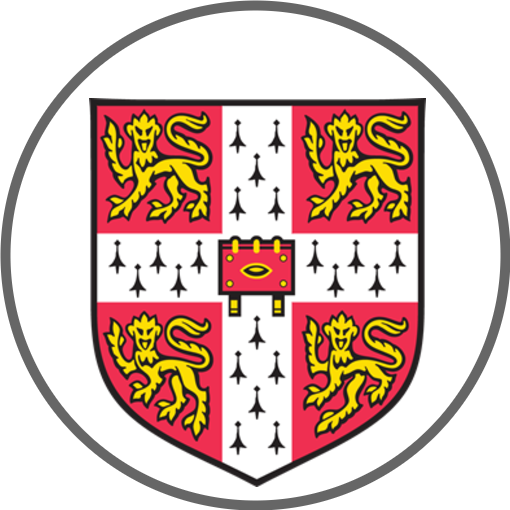All About University Admissions
Is MY BACHELOR'S DEGREE RECOGNIZEd at GERMAN UNIVERSITIES ?
Not all certificates, documents, and diplomas are recognized in Germany. This depends on the country and the education system where the student received the certificate. It is quite possible that in one country some universities are recognized while some are not. Therefore, please fill out the online application form to find out full information about your previous institution and diploma and the possibility of recognition as a qualification for higher education institutions in Germany.
Schedule a consultation to learn more about your profile
TYPES OF ADMISSION TO UNIVERSITIES IN GERMANY
There are two types of university admissions in Germany
1- (Direkte Zulassungsbescheid) Direct invitation * This means that the student has fulfilled all the prerequisites for university registration.
2- (Bedingte Zulassungsbescheid) Conditional invitation * This means that the student has entered the university under certain conditions. For example, a student has to reach a certain level of German or take an exam in the preparatory year before the university admission period. In this case, the applicant must bring registration for a German language course or the preparatory year exam, if required.
1- (Direkte Zulassungsbescheid) Direct invitation * This means that the student has fulfilled all the prerequisites for university registration.
2- (Bedingte Zulassungsbescheid) Conditional invitation * This means that the student has entered the university under certain conditions. For example, a student has to reach a certain level of German or take an exam in the preparatory year before the university admission period. In this case, the applicant must bring registration for a German language course or the preparatory year exam, if required.
DO I need THE PREPARATORY YEAR IN GERMANY?
Studienkolleg is a kind of pre-university training center. In Germany, Studienkolleg is mandatory for those who want to enter a German university and do not meet the conditions for "direct" admission.
Why all this?
You have just graduated from school in your home country;
You want to apply to a German university;
You have to be "trained" to the level of a German school graduate.
Types of the preparatory year
G-Course: Preparatory year for students who want to study German linguistics, history, literature, and philosophy.
M-Cours: Preparatory year for students interested in studying medicine, pharmaceutics, dentistry, biology, and agronomy.
S-Course: Preparatory year for students wishing to learn languages.
T-Course: Preparatory year for students wanting to study engineering, physics, chemistry, and mathematics.
W-Course: Preparatory year for students wanting to study economics and political economy.
Why all this?
You have just graduated from school in your home country;
You want to apply to a German university;
You have to be "trained" to the level of a German school graduate.
Types of the preparatory year
G-Course: Preparatory year for students who want to study German linguistics, history, literature, and philosophy.
M-Cours: Preparatory year for students interested in studying medicine, pharmaceutics, dentistry, biology, and agronomy.
S-Course: Preparatory year for students wishing to learn languages.
T-Course: Preparatory year for students wanting to study engineering, physics, chemistry, and mathematics.
W-Course: Preparatory year for students wanting to study economics and political economy.
WHAT LEVEL OF GERMAN IS REQUIRED TO STUDY IN GERMANY ?
German is an essential language in scientific circles, and it is also one of the most beautiful languages; despite some difficulties you may face at the beginning of your studies, it will become easy, smooth, and entertaining over time. By specific and straightforward rules
German level
A1-A2-B1-B2-C1-C2
Exams that can be taken for admission to German universities
Test Deutsch als Fremdsprache (TestDaF-TDN 4)
Deutsche Sprachprüfung für den Hochschulzugang (DSH 2)
Das Deutsche Sprachdiplom der Kultusministerkonferenz - Zweite Stufe (DSD II)
GOETHE-ZERTIFIKAT C2
Telc C1
ÖSD Zertifikat C2
The university may also request a lower level. The language requirements are indicated on the university website.
You can also study German in Germany at universities or private language schools.
German level
A1-A2-B1-B2-C1-C2
Exams that can be taken for admission to German universities
Test Deutsch als Fremdsprache (TestDaF-TDN 4)
Deutsche Sprachprüfung für den Hochschulzugang (DSH 2)
Das Deutsche Sprachdiplom der Kultusministerkonferenz - Zweite Stufe (DSD II)
GOETHE-ZERTIFIKAT C2
Telc C1
ÖSD Zertifikat C2
The university may also request a lower level. The language requirements are indicated on the university website.
You can also study German in Germany at universities or private language schools.
WHICH DOCUMENTS ARE REQUIRED FOR ADMISSION TO THE BACHELOR'S DEGREE PROGRAM ?
- Passport photo
- Resume in English or German where you provide your data (name, address, email, date, and place of birth, nationality); school or schools where you studied, indicating the period of study as well as dates of secondary and general education; language skills and level of proficiency; hobbies and certificates obtained at the school in any activity.
- Bachelor's Certificate certified and translated into English or German
- Certificates of Language Proficiency
- Certificates of Skills
It's important:
The certificates can be translated into German or English. However, the certification should come from the country of origin from which the certificates were issued, preferably the German Embassy.
what DOCUMENTS ARE REQUIRED FOR ADMISSION TO THE MASTER'S LEVEL ?
- Passport photo
- Resume in English or German where you provide your personal data (name, address, email, date and place of birth, nationality); school or schools where you studied, indicating the period of study as well as dates of secondary and general education; language skills and proficiency; hobbies and certificates obtained at the school in any activity.
- Bachelor's degree certificate, certified and translated
- Diploma Supplement (grades from the university)
- School certificate with translation and notarized certification
- Recommendation letter from the professor at the university in English
- Certificates of Language Proficiency
- Certificates of Skills
----------------------------------------------------------
It's important:
The certificates can be translated into German or English. The certification should come from the country of origin from which the certificates were issued, preferably the German Embassy.
|
|




